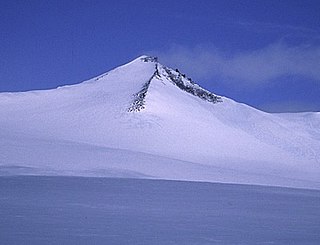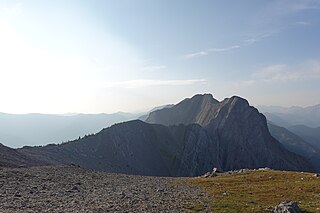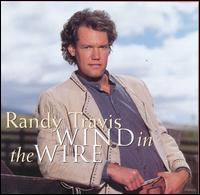
A fiddle is a bowed string musical instrument, most often a violin. It is a colloquial term for the violin, used by players in all genres, including classical music. Although in many cases violins and fiddles are essentially synonymous, the style of the music played may determine specific construction differences between fiddles and classical violins. For example, fiddles may optionally be set up with a bridge with a flatter arch to reduce the range of bow-arm motion needed for techniques such as the double shuffle, a form of bariolage involving rapid alternation between pairs of adjacent strings. To produce a "brighter" tone than the deep tones of gut or synthetic core strings, fiddlers often use steel strings. The fiddle is part of many traditional (folk) styles, which are typically aural traditions—taught "by ear" rather than via written music.

Breathe is the fourth studio album by American country music artist Faith Hill, released November 9, 1999, via Warner Bros. Nashville. The album is one of the most successful country pop albums of all time and Hill's best selling album to date, being certified certified 8× Platinum by the Recording Industry Association of America.

Barbeau Peak is a mountain in Qikiqtaaluk, Nunavut, Canada. Located on Ellesmere Island within Quttinirpaaq National Park, it is the highest mountain in Nunavut and the Canadian Arctic. The mountain was named in 1969 after Marius Barbeau, a Canadian anthropologist whose research into First Nations and Inuit cultures gained him international acclaim.
Mount Clemenceau is the fourth highest mountain in the Park Ranges of the Canadian Rockies. The peak was originally named "Pyramid" in 1892 by Arthur Coleman. The mountain was renamed by the Interprovincial Boundary Survey in 1919 to its present name, which is for Georges Clemenceau, premier of France during World War I.

Mount Brazeau is a mountain in Alberta, Canada.

"The Devil Went Down to Georgia" is a song written and recorded by American music group Charlie Daniels Band and released on their 1979 album Million Mile Reflections.

The Beaverfoot Range is a mountain range in the Kootenay Ranges of the Canadian Rockies, located in southeastern British Columbia. The range extends from Cedared Creek near Spillimacheen north to the Kicking Horse River.

The Fiddle Range is a mountain range of the Canadian Rockies located south of Highway 16 on the east border of Jasper National Park, Canada.

Roche à Perdrix is a mountain in Alberta's Rockies, Canada.
Pylon Peak is the southernmost of six named volcanic peaks comprising the Mount Meager massif in British Columbia, Canada. Two pinnacled ridges extend from Pylon and are named respectively the Pylons and the Marionettes. Pylon Peak overlooks the Meager Creek Hot Springs.

Pain to Kill is the fifth studio album by Canadian country music artist Terri Clark. It was released through Mercury Nashville on January 14, 2003. The album has been certified Gold by the RIAA, her last certified studio album to date in the United States. The album was produced by Byron Gallimore and Keith Stegall. Unlike her previous albums, Clark did not have a large hand in writing, only co-writing five of the album's twelve tracks.
Round Peak is an unincorporated community in Surry County, North Carolina, United States, near Mount Airy with an elevation of 1,280 feet. It is located in the southern Appalachian Mountains and gives its name to the Round Peak style of old-time music practiced in the area.

The Cat and the Fiddle is a 1934 American pre-Code romantic musical film directed by William K. Howard based on the hit 1931 Broadway musical of the same name by Jerome Kern and Otto A. Harbach, about a romance between a struggling composer and an American singer. The film stars Ramon Novarro and Jeanette MacDonald in her MGM debut.

The Fiddle River is a medium-sized tributary of the Athabasca River, flowing into the river near the east gate of Jasper National Park in Alberta, Canada. The Fiddle River forms at the base of Fiddle Pass, with meltwater from Mount Bryant, Mount Gregg, Mount Sir Harold Mitchel, and Mount Barry. The river flows in a general northeast direction before its confluence with the Athabasca. The Fiddle River parallels the road to the popular Miette Hotsprings for a portion of its course.

Wind in the Wire is the eighth studio album released by American country music artist Randy Travis. It was released on August 17, 1993, by Warner Records. The album was made to accompany a television series also entitled Wind in the Wire. Two of the album's singles — "Cowboy Boogie" and the title track — entered the Billboard country music charts, peaking at #46 and #65, respectively, making this the first album of Travis's career not to produce any Top 40 hits in the United States. "Cowboy Boogie", however, was a #10 on the RPM Country Tracks charts in Canada.

"Watch This" is a song recorded by American country music singer Clay Walker. It was released in August 1997 as the third single from his album Rumor Has It.

The Front Ranges are a group of mountain ranges in the Canadian Rockies of eastern British Columbia and western Alberta, Canada. It is lowest and the easternmost of the three main subranges of the Continental Ranges, located east of the Bull and Elk rivers and a fault line extending northwest of West Elk Pass to McGregor Pass.

Canadian fiddle is the aggregate body of tunes, styles and musicians engaging the traditional folk music of Canada on the fiddle. It is an integral extension of the Anglo-Celtic and Québécois French folk music tradition but has distinct features found only in the Western hemisphere.
Quebec fiddle is a part of the Old time fiddle canon and is influential in New England and Northwest fiddle styles.
















